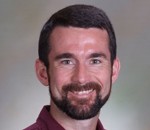 Each patient’s story matters. It tells us who the patient is, and how he or she came to the present point or predicament. The story gives nuance, meaning, perspective, and context to all the medical information and data points that each patient presents. The story introduces us to the patient as a person.
Each patient’s story matters. It tells us who the patient is, and how he or she came to the present point or predicament. The story gives nuance, meaning, perspective, and context to all the medical information and data points that each patient presents. The story introduces us to the patient as a person.
Beyond our patient stories, there are other important stories too. I was reminded again of this, while watching the fascinating oral history of evidence based medicine (EBM) recently produced collaboratively by JAMA and BMJ. I first learned medicine in the 1990s, and grew up as a physician learning the ideas of and seeking to emulate the principles of people like Gordon Guyatt, Paul Glasziou, and others—but I’ve had little chance to hear them tell their stories. Watching the JAMA-BMJ video, I felt I was meeting them as people (or at least, as physicians) for the first time. I heard their experiences, frustrations, and hopes. I was reminded again that no movement, no discipline, no set of ideas is simply a group of principles or practices. Any human endeavor is the product of those who have learned and labored, and we learn best when we can learn from those original thinkers and pioneers.
I first learned this lesson, and should have remembered it better, when participating in “The Great Conversation” as an undergraduate student. Over two years, we read, discussed and debated most of the works of literature that have shaped Western civilization. We were not lectured on Plato, we read Plato—and Aristotle, Homer, JS Mill, DesCartes, and many others. The experience was unforgettable, and it impressed on me the value of wrestling with ideas in their original formulation, not someone else’s distillation.
I’m not yet sure if the founders of EBM belong on the same plane as Aristotle, Plato, Homer, et al (sorry!), but I do think their recent video oral history is a good reminder of the principle I learned in the Great Conversation: you’ll never learn it better, than by wrestling with the work of the original thinkers.
I think this lesson deserves particular attention given some of the recent criticisms of EBM, especially from those who see it too focused on cookbooks, guidelines, protocols, etc. Evidence based medicine must be about applying the “best evidence in making decisions about the care of individual patients,” but sometimes we learn best how to do this, not by looking to a guideline, but by learning how wise physicians have learned to appraise, critique, and apply that evidence.
Evidence based medicine needs the meta-analyses, the randomized controlled trials, and the systematic reviews, but EBM also needs the stories—the stories of patients, the stories of physicians who have struggled with evidence, and the stories of the thinkers who have sought to push us forward.
Competing interests: “I declare that I have read and understood the BMJ Group policy on declaration of interests and I have no relevant interests to declare beyond a passion for learning from our history.”
William E Cayley Jr practises at the Augusta Family Medicine Clinic, teaches at the Eau Claire Family Medicine Residency, and is a professor at the University of Wisconsin, Department of Family Medicine.
